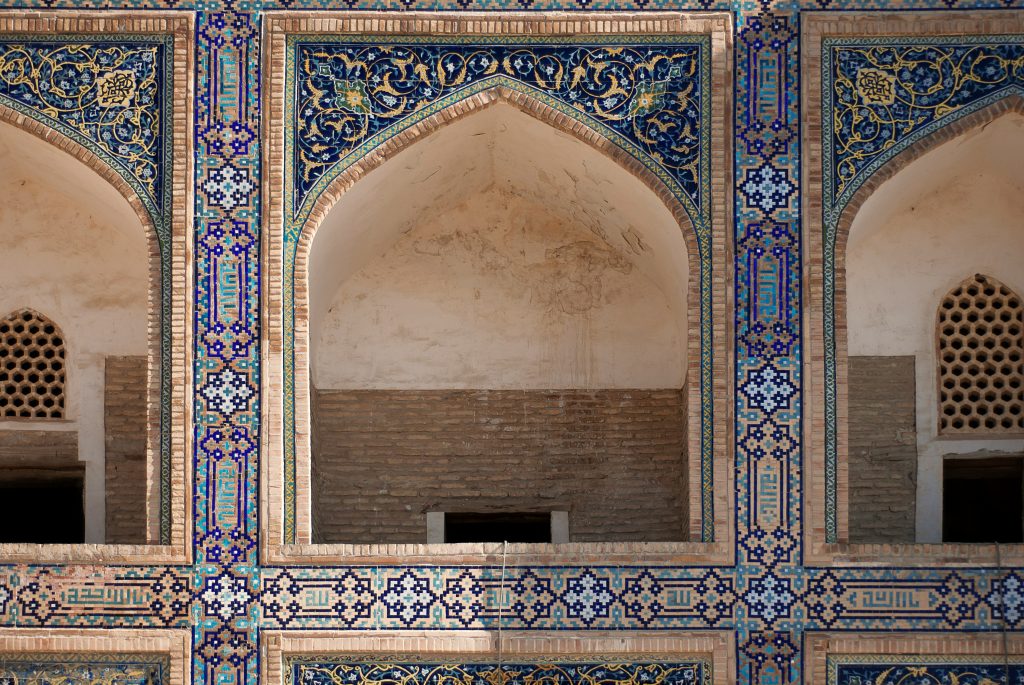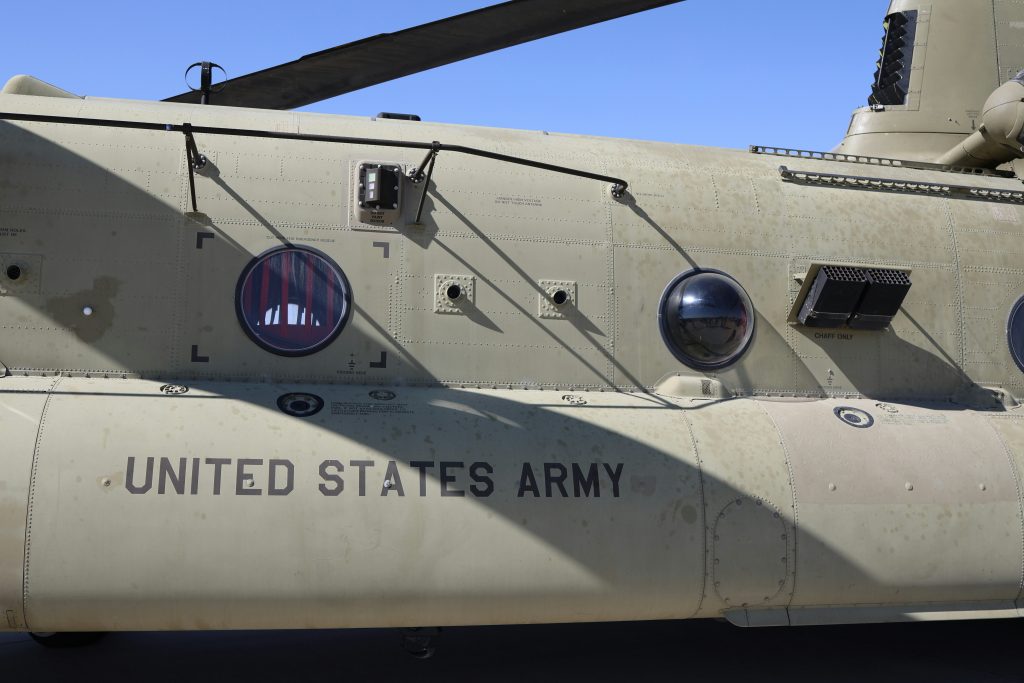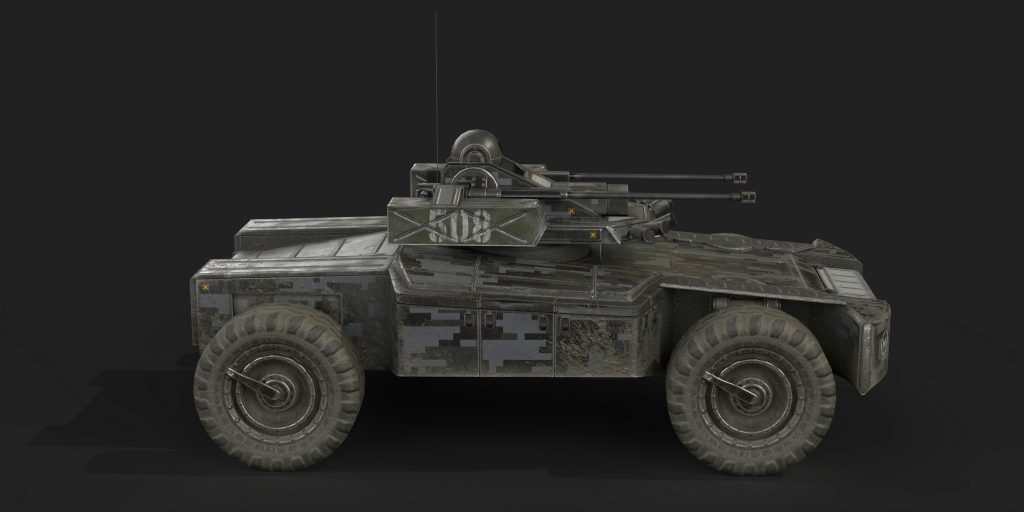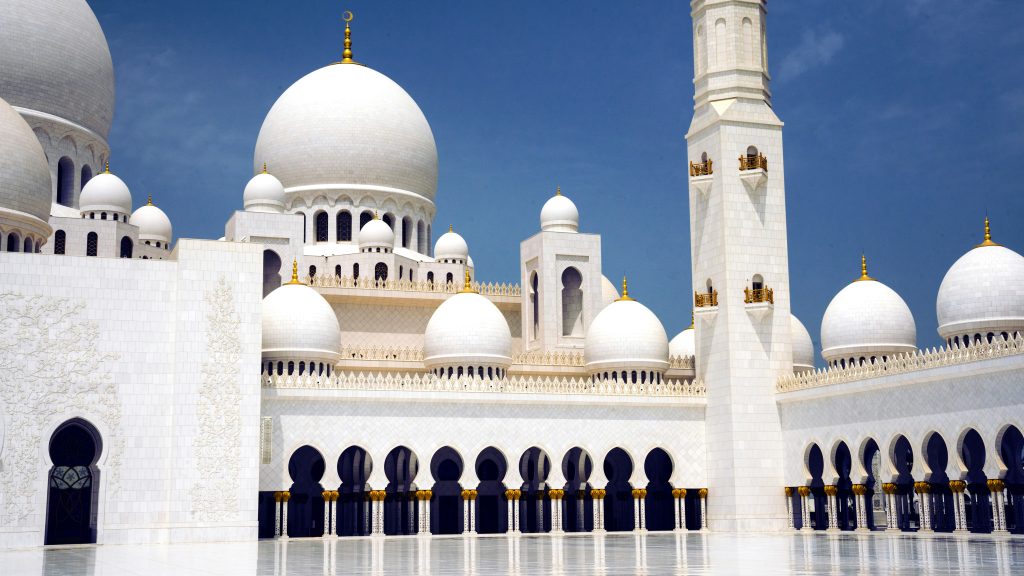Trump Nominates Mike Huckabee as Ambassador to Israel Amidst Ongoing Conflict
In a bold move amidst the ongoing conflict between Israel and Hamas, President-elect Donald Trump has officially nominated former Arkansas Governor Mike Huckabee as the United States ambassador to Israel. This decision has sparked a wave of reactions, highlighting Huckabee’s strong ties to the evangelical Christian community and his long-standing support for Israeli policies, particularly the annexation of the West Bank.
Huckabee’s nomination comes at a crucial time, as tensions in the Middle East have escalated, raising questions about U.S. foreign policy and its impact on regional stability. As a prominent figure within the Republican Party, Huckabee’s views align closely with those of many in the evangelical community, who view support for Israel as a moral imperative. His advocacy for Jewish sovereignty over disputed territories has been a hallmark of his political career, making him a polarizing figure in discussions surrounding the Israeli-Palestinian conflict.
The former governor’s history of supporting Israeli settlements in the West Bank has drawn both praise and criticism. Supporters argue that Huckabee’s approach reflects a commitment to Israel’s security and legitimacy, while critics contend that his views could exacerbate tensions and hinder peace efforts in the region. As ambassador, Huckabee is expected to advocate for policies that promote Israel’s interests, potentially reshaping U.S. relations with Palestinian leadership and other Middle Eastern countries.
In addition to Huckabee’s nomination, Trump has also appointed businessman Steve Witkoff as his special envoy to the Middle East. This dual appointment signals an aggressive strategy aimed at reinforcing U.S. support for Israel during a time of heightened conflict. Witkoff’s experience in business and real estate may offer a unique perspective on economic development in the region, although his lack of diplomatic experience raises questions about the effectiveness of his role.
The implications of Huckabee’s nomination extend beyond bilateral relations between the U.S. and Israel. It reflects a broader shift in American politics, where evangelical Christians have increasingly influenced foreign policy decisions. Huckabee’s appointment may signal to the international community that the U.S. is firmly aligned with Israel’s policies, potentially alienating other nations and complicating efforts to broker peace.
As the world watches the unfolding dynamics in the Middle East, Huckabee’s nomination will undoubtedly be scrutinized. His ability to navigate the complexities of the role will be critical, especially in light of the ongoing violence and humanitarian crises in the region. The ambassador’s stance on key issues, such as settlement expansion and Palestinian rights, will play a significant role in shaping U.S. foreign policy moving forward.
In conclusion, Mike Huckabee’s nomination as ambassador to Israel underscores the intertwining of faith and politics in contemporary America. His deep-rooted beliefs and unwavering support for Israeli sovereignty present both opportunities and challenges for U.S. diplomacy in the Middle East. As the Trump administration prepares to take office, the world eagerly anticipates how these appointments will influence the future of American-Israeli relations and the broader quest for peace in the region.
Tags: ambassador, Huckabee, Israel, Middle East, Mike Huckabee, Trump
Intense Military Operations Target Hamas Leader Amid Ongoing Conflict
In a significant escalation of military operations in Gaza, the Israeli military has reported the deaths of three militants in a targeted action. Among the individuals under scrutiny is Yahya Sinwar, the leader of Hamas, who has been labeled as a key architect behind the devastating attacks on October 7, 2022. Reports indicate that Israeli intelligence agents are currently assessing whether Sinwar was among those killed in the operation.
Since the attacks, which resulted in the tragic loss of over 1,200 lives and the abduction of more than 250 hostages, Sinwar has become a focal point for Israeli military efforts. Despite the ongoing violence and military pressure, sources close to Sinwar suggest that he remains defiant, showing no remorse for the actions taken by Hamas during the assault. This unyielding stance has only intensified the resolve of Israeli forces to locate and eliminate him.
The implications of Sinwar’s possible demise could be profound, marking a pivotal moment in the prolonged conflict between Israel and Hamas. Should the reports of his death be confirmed, it would represent the culmination of a year-long pursuit by Israeli forces, who have been meticulously tracking the movements of the Hamas leader, believed to be hiding within the complex network of tunnels utilized by the militant group in Gaza.
The Israeli military’s ongoing efforts reflect a broader strategy aimed at dismantling Hamas’s leadership and operational capabilities, further complicating the already fragile situation in the region. As tensions continue to mount, the international community watches closely, with concerns about the potential for further escalation and humanitarian crises.
In the wake of these developments, the situation in Gaza remains precarious, with civilians caught in the crossfire of military operations and retaliatory strikes. The humanitarian implications of such military actions are dire, as aid organizations struggle to provide assistance amid ongoing conflict and instability.
As Israel continues its campaign against Hamas, the fate of Sinwar remains uncertain, with each passing day heightening the stakes for both sides. The military’s assertion that they are evaluating the possibility of his death underscores the importance of leadership in this conflict and the lengths to which both parties will go to secure their objectives.
In conclusion, the potential death of Yahya Sinwar could signify a turning point in the ongoing struggle between Israel and Hamas, with repercussions that extend beyond the immediate conflict. As the situation evolves, it is crucial to remain vigilant and attentive to the developments on the ground, recognizing the profound impact that these events have on the lives of countless individuals caught in the turmoil.
The world holds its breath as the outcome of this operation could reshape the dynamics of power within Gaza and the broader region, emphasizing the critical need for a sustainable resolution to the conflict that has plagued this area for decades.
Tags: Gaza, Hamas, Israel, Military Operations, Sinwar, Yahya Sinwar
Escalating Conflict in Beirut: A City Under Siege
In the heart of Beirut, the echoes of war reverberate through the streets as the conflict between Israel and Hezbollah intensifies. On Thursday, the Israeli military issued urgent evacuation orders to residents of over 20 towns in southern Lebanon, signaling a significant escalation in their offensive. Reports indicate that the recent Israeli airstrikes on Beirut have left the capital’s residents grappling with fear and uncertainty, as they face the stark reality of a city caught in the crossfire.
The situation escalated dramatically when an Israeli airstrike targeted an apartment in the central Bachoura neighborhood, resulting in the deaths of at least nine individuals, including seven first responders affiliated with Hezbollah. This attack marks one of the deadliest incidents in the ongoing conflict, further heightening tensions in a region already fraught with instability.
As the sun sets over the city, the fear among residents is palpable. Many are finding it increasingly difficult to sleep, haunted by the sounds of airstrikes and the omnipresent threat of violence. The Israeli military’s operations have intensified, with ground offensives and airstrikes becoming more frequent, leading to a rising death toll that continues to climb as each day passes.
The Israeli government’s war cabinet is reportedly deliberating its next steps in response to heightened aggression from Iran, which has recently launched its most substantial attack on Israel to date. The ramifications of these developments extend beyond the immediate conflict, as they threaten to destabilize the already fragile balance in Lebanon and the broader region.
Residents of Beirut find themselves in a precarious position, with the specter of war looming large over their daily lives. The airstrikes that once felt distant are now a brutal reality, forcing many to confront the possibility of displacement and loss. The international community watches closely, as events unfold in a city that has long been a focal point of conflict in the Middle East.
As the violence continues, humanitarian concerns grow. The potential for a humanitarian crisis looms large, with many families already struggling to cope with the repercussions of ongoing airstrikes and ground battles. The destruction of infrastructure and the disruption of essential services are increasingly evident, raising urgent questions about the future of Lebanon and the safety of its citizens.
In this critical moment, the resilience of the people of Beirut is tested as they navigate the complexities of living in a war-torn city. Each day brings new challenges, yet there remains an enduring spirit among the residents – a desire for peace and stability in a region that has seen too much turmoil.
As the international community seeks to mediate and find solutions, the eyes of the world are on Beirut. The city stands as a testament to the human cost of conflict, where the struggle for survival takes precedence over all else. The unfolding events will undoubtedly shape the narrative of Lebanon’s future and the broader geopolitical landscape in the Middle East.
Tags: Airstrike, Beirut, Hezbollah, Israel, Lebanon
Iran’s Unprecedented Missile Assault on Israel Escalates Tensions
In a dramatic escalation of hostilities in the Middle East, Iran launched an unprecedented barrage of over 180 ballistic missiles targeting Israel on October 1. This marked the largest single missile attack recorded against the nation, sending shockwaves through international communities and heightening fears of broader conflict. The assault was characterized by its scale and complexity, showcasing advanced weaponry beyond what was seen in previous engagements, particularly the strikes that occurred earlier in the year.
As air raid sirens wailed across Israeli cities, the country’s defenses, notably the Iron Dome, were activated to intercept the incoming missiles. The Israeli Defense Forces reported successful interceptions, yet the sheer volume of projectiles launched posed a significant challenge.
In the aftermath of the strike, Israeli officials issued stern warnings regarding the consequences of Iran’s actions, labeling the assault as a grave provocation. The Iranian government, however, framed the missile barrage as a retaliatory measure against what they described as attacks on their allies in the region. This reciprocal cycle of aggression raises alarms over the potential for escalating military engagements.
The situation has drawn attention from global leaders, with the White House emphasizing that any direct military aggression from Iran would result in severe repercussions. This statement reflects a growing concern among U.S. officials regarding Iran’s increasing assertiveness and its implications for regional stability.
Additionally, the conflict has seen ground engagements between Israeli forces and Hezbollah fighters, further complicating an already volatile situation. The interconnected nature of these conflicts highlights the potential for a wider war if diplomatic avenues are not pursued.
The international community is now watching closely as tensions rise, with calls for restraint on all sides. As the dust settles from this latest offensive, the need for a renewed dialogue and a strategic approach to peace in the region has never been more critical. The implications of this missile attack extend far beyond the immediate conflict, threatening to reshape alliances and provoke further military responses.
In light of these developments, analysts warn that the fragile balance in the Middle East could be tipped into a broader confrontation if decisive actions are not taken to de-escalate the situation. The possibility of further missile strikes looms large, and with it, the specter of war that could engulf the region in chaos.
The urgency of the situation calls for an international response to prevent further escalation and to seek a sustainable resolution to the hostilities that have plagued the region for decades. As Iran continues to assert its military capabilities, the world must grapple with the implications of this evolving conflict and the potential for widespread upheaval.
Tags: Ballistic missile, Ballistic Missiles, Iran, Israel, Military Conflict
Escalating Tensions: Israel’s Ground Incursion into Lebanon Amid Iranian Missile Strikes
In a dramatic escalation of hostilities, the Israeli military has launched a significant ground incursion into southern Lebanon, coinciding with a barrage of missile attacks from Iran targeting Israeli territories. As air raid sirens blared across Israel, citizens rushed to bomb shelters, witnessing the ominous sight of missiles streaking through the night sky. This troubling development marks an alarming turn in the ongoing conflict, raising fears of a broader regional war involving two of the Middle East’s most formidable military powers.
The Iranian missile strikes are reportedly a response to Israel’s intensified military operations against Hezbollah, a militant group in Lebanon long supported by Tehran. In recent weeks, Israeli forces have engaged in what they describe as ‘limited incursions’ aimed at dismantling Hezbollah’s military capabilities, which have been a persistent threat to Israeli security. The Israeli military’s operations have drawn sharp condemnation from Iran, prompting Tehran to vow a retaliatory response.
Israeli officials have made it clear that a ‘significant retaliation’ is forthcoming, as the nation grapples with the implications of the Iranian attacks. Prime Minister Benjamin Netanyahu has asserted that Iran will ‘pay for’ its aggressive actions, signaling a commitment to defending Israel’s sovereignty at all costs. The strategic coordination between the U.S. military and the Israeli Defense Forces during these tensions highlights the international ramifications of the conflict, with the Pentagon closely monitoring the situation.
The current crisis is reminiscent of the monthlong war that erupted in July 2006, where Israeli forces found themselves entangled in fierce battles against Hezbollah, leading to substantial casualties on both sides. Experts warn that the ongoing military engagements could spiral into a wider conflict, particularly if Iran continues its missile assaults. As the situation continues to evolve, military analysts are closely watching the developments, assessing the potential for a broader confrontation in the already volatile region.
The implications of these events extend beyond military might; they raise critical questions about regional stability and the potential for civilian casualties amid the escalating violence. The humanitarian impact of such conflicts often bears heavy consequences, prompting calls for urgent diplomatic interventions to de-escalate tensions.
As the Israeli military prepares for further operations, it remains to be seen how Iran will respond and whether this latest round of hostilities will lead to an all-out war in the Middle East. The international community watches with bated breath, as the fragile balance of power hangs in the balance, and the specter of a larger conflict looms ever closer. With both nations bracing for a protracted struggle, the stakes could not be higher, and the quest for peace seems more elusive than ever.
Tags: Hezbollah, Iran, Israel, Israel news, Middle East, Military Operations
Tensions Rise as Iran Prepares for Potential Missile Strike Against Israel
In a dramatic escalation of tensions in the Middle East, reports indicate that Iran may be on the brink of launching a ballistic missile attack against Israel. This comes in the wake of a deadly Israeli airstrike that killed Hezbollah leader Hassan Nasrallah in Beirut, further fueling the already volatile situation. As Iranians rally in support of Hezbollah, holding pictures of the fallen leader, the specter of conflict looms larger. U.S. intelligence suggests that the scale of the potential strike could be unprecedented, raising alarms in Washington and Jerusalem alike.
Officials have warned that a direct military attack from Iran would have severe repercussions for the nation. The stakes are particularly high given that Iran has previously launched missile strikes at Israel, albeit in a lower intensity. If carried out, this would mark a significant escalation in hostilities and could prompt a robust response from both Israel and the U.S. The region is already on edge, with Israeli forces executing a ground incursion into Lebanon targeting Hezbollah militants.
In light of these developments, the U.S. is reportedly ramping up its support for Israel, preparing defensive measures to counter any potential Iranian aggression. The situation underscores the delicate balance of power in the region, as any miscalculation could lead to widespread conflict. The international community watches closely, aware that the consequences of an Iranian missile strike could ripple far beyond the borders of Israel, impacting global stability.
As the situation unfolds, the atmosphere is charged with uncertainty. Iranian leaders have made bold statements in the past, but the reality of a direct confrontation with Israel—and the U.S.—could have dire consequences for Iran, potentially isolating it further on the world stage.
The geopolitical chess game continues, with both sides preparing for the worst while hoping for a resolution that has so far eluded the region. The coming days could be crucial in determining the trajectory of this conflict and its implications for the Middle East and beyond. Emphasis on diplomatic channels and dialogue is essential, as the world holds its breath in anticipation of the next move in this high-stakes situation.
Tags: Hezbollah, Iran, Israel, Middle East Tensions, Missile Strike
Hezbollah Leader Targeted in Israeli Airstrike: A Turning Point in the Lebanon Conflict
In a significant escalation of hostilities in the region, the Israeli military launched a series of airstrikes targeting Hezbollah positions in southern Beirut late Friday. This military action comes amid rising tensions and ongoing conflict, with reports indicating that the strikes aimed at a central command post of Hezbollah, a powerful political and military force in Lebanon led by Hassan Nasrallah since 1992. The airstrikes prompted urgent evacuation orders for residents in the affected areas, highlighting the immediate dangers faced by civilians caught in the crossfire.
Eyewitnesses reported a series of explosions that rattled the southern suburbs of Beirut, with buildings reportedly reduced to rubble as Israeli warplanes executed their operations. The strikes are said to have focused on an underground bunker used by Hezbollah, further illustrating the group’s strategic military infrastructure within civilian neighborhoods. Israeli officials claimed the operation was a preemptive measure following intelligence reports suggesting that Nasrallah was present at the location during the attack.
Hassan Nasrallah, a controversial figure in the Middle East, has played a pivotal role in shaping Hezbollah into a formidable entity with significant influence both politically and militarily. His leadership has been marked by a steadfast commitment to resistance against Israeli forces, often drawing Lebanon into broader regional conflicts. The recent airstrike, which reportedly resulted in casualties, has raised questions about the future of Hezbollah’s operations and its response to these provocations.
Analysts suggest that the assassination of key figures like Nasrallah could change the dynamics of the conflict, with some arguing that it may inadvertently strengthen Hezbollah’s resolve and rally support among its base. The group has historically thrived on narratives of resistance and martyrdom, and the loss of its leader could be framed as a rallying cry for its supporters.
The ramifications of this airstrike extend beyond Lebanon, potentially influencing the geopolitical landscape across the region. As Israel continues to assert its military capabilities, the response from Hezbollah and its allies will be crucial in determining the next steps in this ongoing conflict.
As the situation develops, the international community watches closely, aware that escalations in Lebanon can have far-reaching consequences, potentially igniting wider regional instability. The humanitarian implications are also dire, with civilians at risk as military operations unfold in densely populated urban areas. The calls for evacuation underscore a growing concern for the safety of innocent lives amid the chaos of war.
In summary, the recent Israeli airstrikes targeting Hezbollah and its leader mark a critical juncture in the Lebanon conflict. With significant implications for both local and regional stability, the world remains on edge, awaiting the next move from both Israeli forces and Hezbollah in a volatile and unpredictable landscape.
As tensions escalate, the need for dialogue and conflict resolution becomes increasingly urgent, with many advocating for measures to protect civilians and seek a de-escalation of hostilities in the region.
Tags: Hezbollah, Israel, Middle East, Military Action, Nasrallah
Hezbollah Leader Hassan Nasrallah Reportedly Killed in Israeli Airstrike
In a dramatic escalation of conflict in the Middle East, Israeli airstrikes targeted key locations in southern Beirut on Friday evening, resulting in the reported death of Hezbollah’s Secretary-General, Hassan Nasrallah. The strikes were aimed at Hezbollah command posts, which have been a focal point of the group’s military operations against Israel. The Israeli military instructed residents in parts of Beirut’s southern suburbs to evacuate, indicating the severity of the situation.
Hassan Nasrallah, who has led Hezbollah since 1992, transformed the organization into a formidable political and military force within Lebanon and the region at large. Under his leadership, Hezbollah became not only a significant player in Lebanon’s political landscape but also a key actor in regional conflicts, often positioning itself against Israel. The Lebanese group has been involved in various confrontations, including the 2006 Lebanon War and ongoing tensions related to the Syrian Civil War.
The Israeli airstrike reportedly struck an underground bunker that Hezbollah maintained in a residential area, raising concerns about civilian casualties and the potential for further escalation. Israeli officials justified the attack as a necessary action to dismantle Hezbollah’s operational capabilities, claiming that the group poses an ongoing threat to national security. This incident marks a significant moment in the ongoing hostilities between Israel and Hezbollah, underscoring the precarious balance of power in the region.
While the immediate impact of Nasrallah’s reported death remains to be seen, analysts suggest that it could have profound implications for Hezbollah and Lebanon as a whole. Some experts believe that his death could either destabilize the group or, conversely, galvanize support for Hezbollah among its loyalists, further entrenching its role in Lebanese politics.
The situation remains fluid, with both the Israeli government and Hezbollah likely to respond in the coming days. As regional tensions escalate, the international community watches closely, concerned about the potential for broader conflict that could spill beyond Lebanon’s borders. The developments in Beirut highlight the fragile state of peace in the region and the complex interplay of local and international forces that continue to shape the Middle East’s geopolitical landscape.
Tags: Airstrike, Hassan Nasrallah, Hezbollah, Israel, Middle East
Rising Tensions: Israel Launches Preemptive Strikes Against Hezbollah Amid Escalating Cross-Border Violence
In a dramatic escalation of hostilities, Israel has launched a series of preemptive airstrikes targeting Hezbollah positions in southern Lebanon. This military action follows intelligence reports indicating an imminent threat posed by the militant group, which has been increasingly active along the border. The operation involved over 100 fighter jets striking more than 40 locations associated with Hezbollah, a move that Israeli officials claim was necessary to prevent a significant attack.
The Israeli military’s decision to carry out these strikes underscores the growing tension in the region, as both sides have exchanged heavy fire across the border. Following Israel’s airstrikes, Hezbollah retaliated by launching rockets and drones aimed at Israeli territories, marking a significant escalation in the ongoing conflict. The militant group’s response indicates a readiness to engage in further hostilities, as they seek to avenge the losses incurred during the airstrikes.
Israeli Prime Minister Benjamin Netanyahu emphasized that the military’s actions were not only defensive but also aimed at safeguarding the nation from potential threats. The preemptive nature of the strikes suggests a shift in Israel’s military strategy, which is likely influenced by the increasing frequency of attacks and provocations from Hezbollah. With the conflict intensifying, the region braces for what could be a prolonged period of violence.
The situation remains fluid, with both Israel and Hezbollah on high alert. Analysts warn that this escalation could lead to a broader conflict, drawing in other regional players and impacting the already fragile security landscape in the Middle East. The international community is closely monitoring the developments, as calls for restraint and dialogue grow louder amidst the rising tensions.
As the conflict unfolds, the implications for civilians in both Lebanon and Israel are dire. The potential for increased military engagements raises concerns over civilian safety and humanitarian conditions, particularly in areas near the Lebanese border where clashes are most intense. The ongoing violence not only affects military personnel but also places a heavy burden on local populations who find themselves caught in the crossfire.
The situation highlights the urgent need for diplomatic efforts to address the underlying issues fueling the conflict. Historical grievances, territorial disputes, and ideological divides continue to contribute to the cycle of violence. Without concerted international mediation, the prospects for peace remain bleak, and the risk of further escalation looms large.
As the world watches, the actions taken by both Israel and Hezbollah will undoubtedly shape the future of the region. The need for de-escalation and dialogue has never been more critical, but with both sides showing no signs of backing down, the path to peace appears fraught with challenges.
Tags: Hezbollah, Israel, Israel Hezbollah Conflict, Lebanon, Military Action, Preemptive Strikes
Escalation of Conflict: Israel and Hezbollah Engage in Intense Strikes
In a significant escalation of hostilities, the Israeli military has initiated a series of preemptive strikes against Hezbollah targets in southern Lebanon early Sunday. This action comes in response to heightened tensions and the looming threat of an aerial attack from the militant group. According to military officials, the strikes were aimed at disrupting what they perceived as imminent plans by Hezbollah to launch an assault on northern Israeli towns.
Hezbollah, in retaliation, has unleashed a barrage of rockets and drones towards Israel, claiming to avenge the killing of one of its senior commanders. This exchange marks one of the most severe confrontations between the two entities, drawing international concern and raising alarms about the potential for further escalation in the region.
The Israeli Defense Forces (IDF) reported that approximately 100 aircraft participated in the operation, targeting over 40 locations in southern Lebanon believed to be associated with Hezbollah’s military capabilities. The military’s proactive approach is indicative of their strategy to mitigate perceived threats before they materialize, a tactic that has been defended as necessary for national security.
As the situation unfolds, both sides appear entrenched in a cycle of retaliation. The civilian population in both Israel and Lebanon is increasingly caught in the crossfire, with fears mounting regarding the humanitarian implications of this renewed conflict. Reports indicate that numerous residents in northern Israel have sought shelter as air raid sirens blare, while Lebanese media has documented the aftermath of the Israeli airstrikes, highlighting the destruction of infrastructure and civilian properties.
International observers are closely monitoring the developments, with calls for restraint and dialogue growing louder amidst the escalating violence. The United Nations has expressed concern over the situation, urging both parties to deescalate and prioritize the safety of civilians.
This latest round of violence underscores the fragile nature of peace in the region, where historical grievances and geopolitical interests continue to fuel tensions. Analysts are warning that without diplomatic intervention, the conflict could spiral into a broader regional confrontation, drawing in various stakeholders with vested interests in the area.
As the world watches, the immediate future for both Israel and Hezbollah remains uncertain. With military actions intensifying, the potential for a wider conflict looms large, underscoring the urgent need for a comprehensive approach to conflict resolution and peacebuilding in a region plagued by decades of strife.
Tags: conflict escalation, Hezbollah, Israel, military strikes









